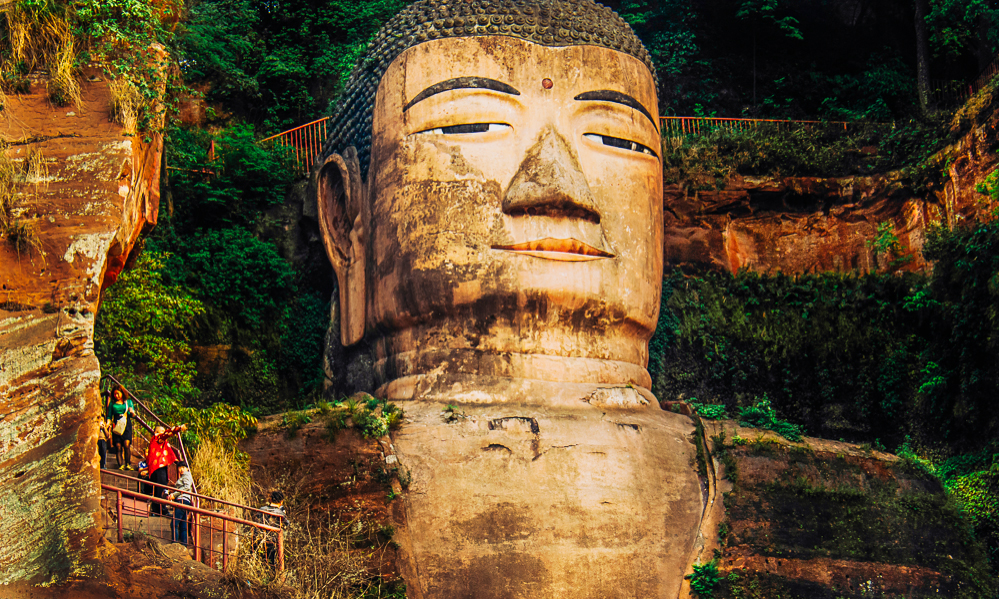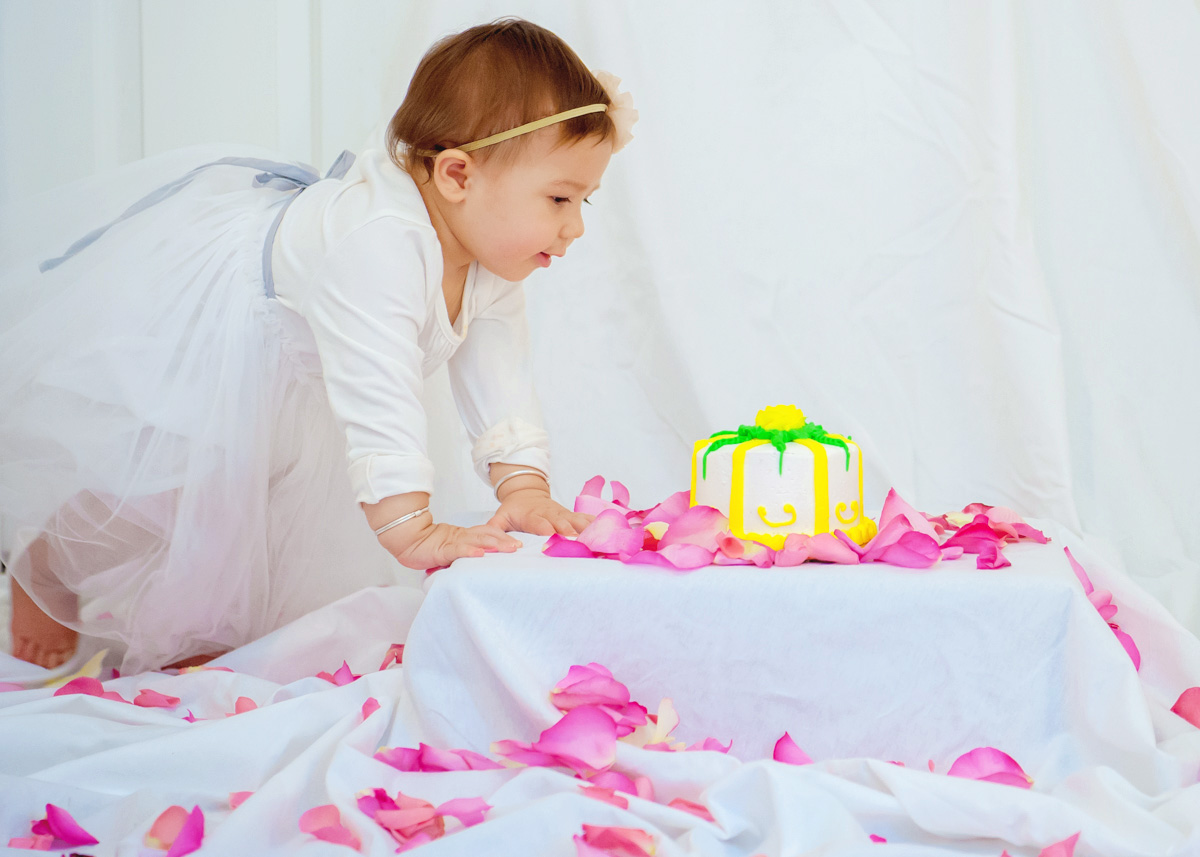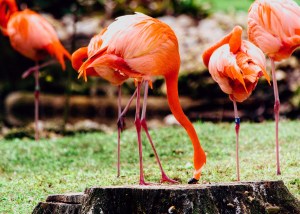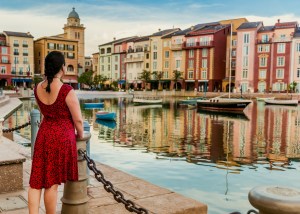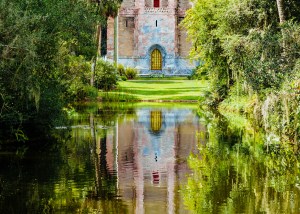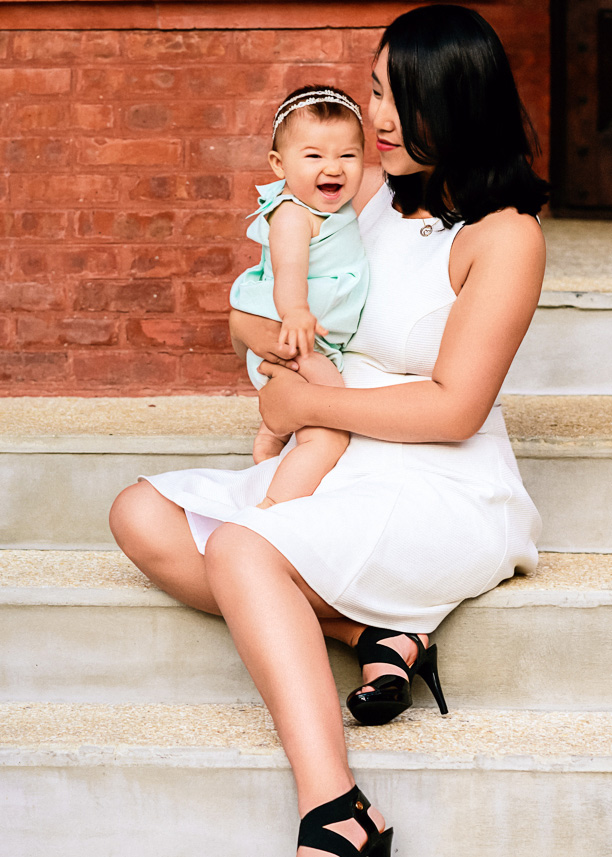I got up early to check the news. It was a cool Autumn morning, but the sunlight shining through the walls of our tent told me that it would be a warm day. I climbed out of my sleeping bag, got dressed and told Dannie I was heading into town. She mumbled something and rolled over.
We had come to Acadia National Park to photograph the foliage in the first week of October. This morning, on the way to Bar Harbor, I watched for colorful trees. A red maple here and a birch there. Much was still green, but there were patches of leafy fireworks. The town had been busy the day before, but now, before the businesses were even open the streets were empty. Where I had once had to struggle to find a parking space, I now had my choice of hundreds.

I pulled over to the side of the road once I was close enough to the town center to get cell phone reception. I pulled out my smartphone and opened up the news app.
“Well I’ll be damned. They did shut it down.”
We’d been warned the day before that if the federal government didn’t reach a compromise in time and closed its doors that the doors of the national parks would close as well. The Acadia shut down meant we would have 48 hours to clear out of the Blackwoods campground (part of the park campground), and that the roads into the park would be barricaded.
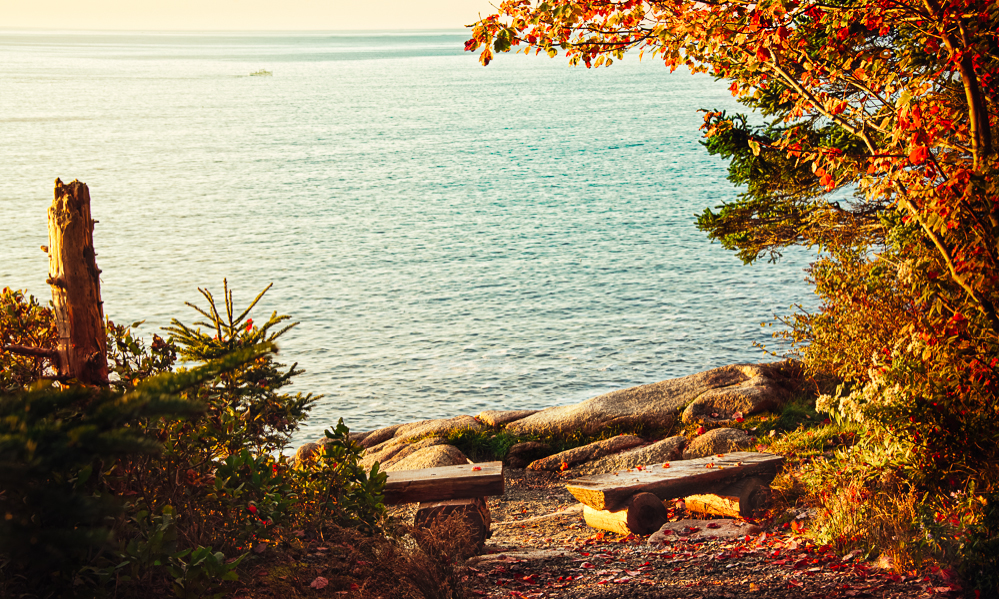
I went back and found Dannie preparing a breakfast of eggs and sausage. I told her what I’d learned, and she asked me what I thought we should do. We talked it over and decided not to leave right away. At the very least we had two more nights of camping. Even if we couldn’t drive into the park, we could still photograph foliage in the nearby towns, and we could have fun together sleeping in the tent and cooking over the campfire.
After breakfast, we went to the park entrance where the ranger told us that they were in the process of shutting down. She said that by the time we drove around the loop the roads would be blocked and there would be law enforcement to let people out. We went in (not sure what to expect).
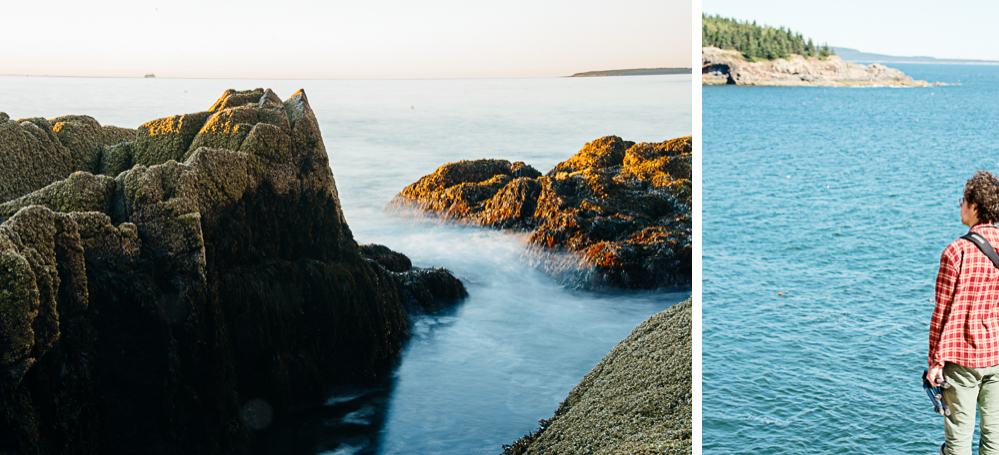
Throughout the park the roads were quiet. Along the shorelines we could see other photographers capitalizing on their last chance to capture Acadia’s natural splendor before it became a victim of political deadlock. We also saw camera crews, presumable reporting on the closure. We took our pictures and headed out. Sure enough, there were armed law enforcement officials closing the gates behind us. The experience was unusual.
That night we sat by the campfire and talked about our plans. What would we do the next day? Should we scout the local lighthouses, or head to Bar Harbor for street photography.
“You know, Dannie,” I said, “that trail that goes out of the campground, down to the water,” Dannie nodded, “the road it crosses is the Loop Road that goes through the park.” Dannie knew my intention right away, and the next morning we packed our gear and headed out. The park entrances were blocked, but from our campground we had access to the heart of Acadia, so long as we didn’t mind a walk.
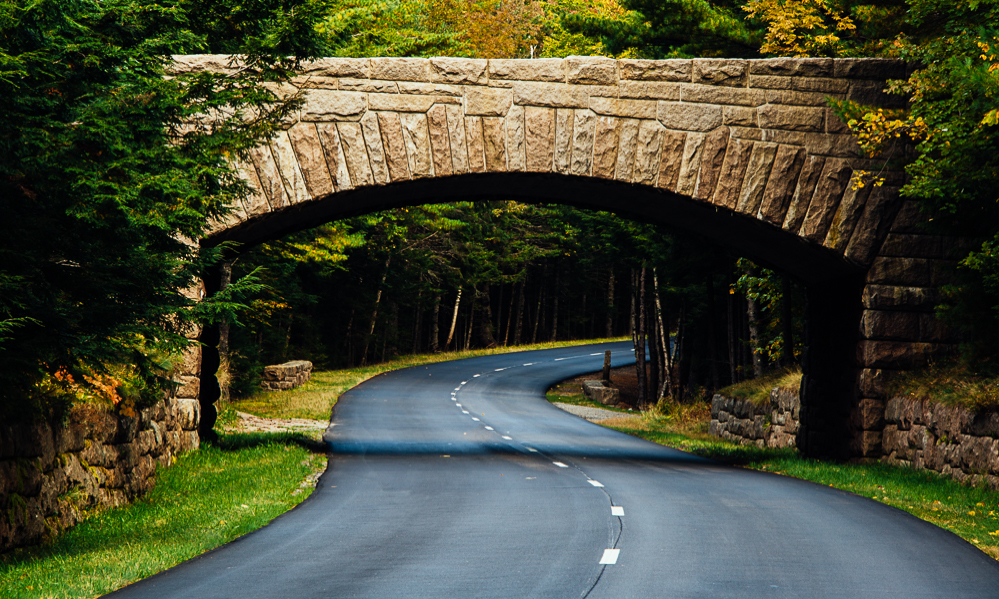
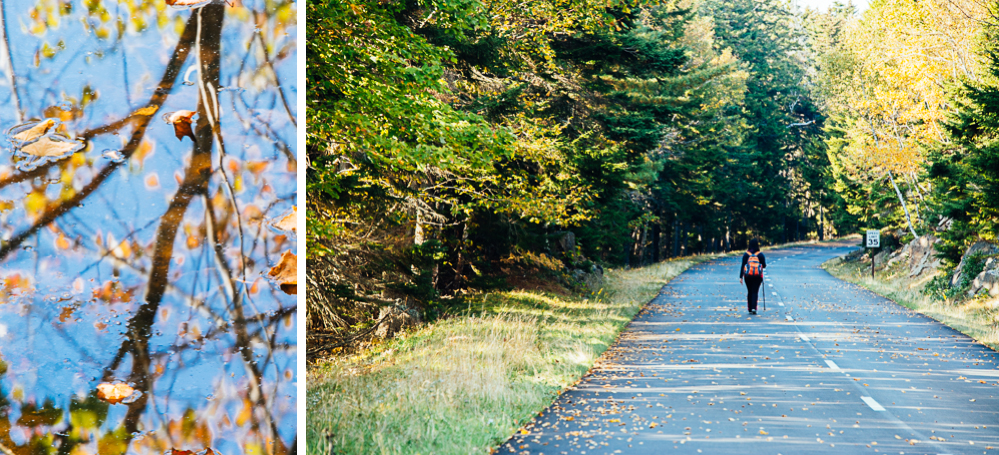
On the deserted Loop Road, we walked for miles without seeing a soul. We photographed the ocean without tourists climbing on the rocks. We photographed the curving roads with fallen leaves undisturbed by passing cars. The previous day had been odd, but the feeling today was completely surreal.
“It feels like after the apocalypse,” Dannie said.
“I know. Any minute now I think the zombies are going to show up.”
The first person we saw was not a zombie. It was a bicyclist who had had the same idea as us. He was taking the opportunity to go the wrong way down the one way road. Later we saw more bicycles, and even a few pedestrians. Everyone had the same look on their face. It was the look of being in a place you are not supposed to be, and knowing you will never have such a chance again. Acadia without traffic, without crowds on a bright, brisk October morning.
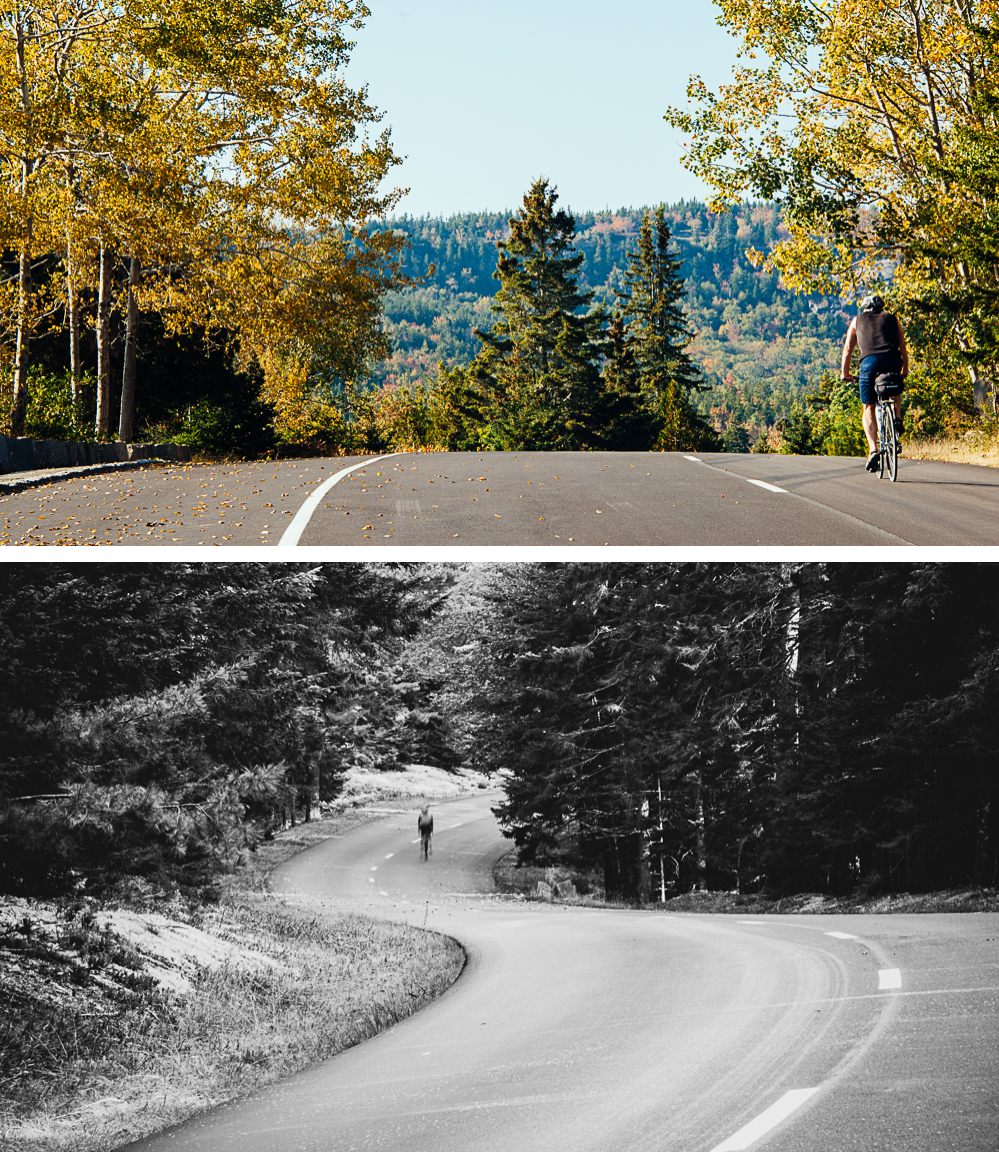
The next day we packed up and left. We didn’t get our full week in Acadia, but in all the times I’ve been there I’d never had so much fun.

